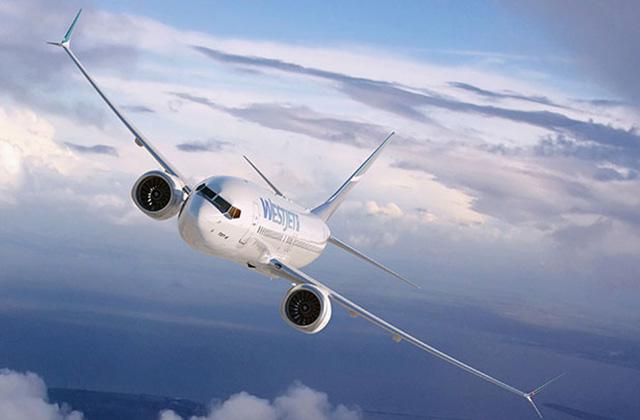
Calgary-based WestJet has removed all Boeing 737 MAX operations from its schedule through Apr. 4, marking the carrier’s ninth MAX-related schedule update since the type was grounded in mid-March 2019.
The latest update removes 18 out of 700 daily flights, affecting roughly 3% of the carrier’s previous schedule, including domestic and transborder operations, as well as flights to and from Hawaii.
WestJet had 13 MAX 8s in its fleet prior to the grounding and had expected to take delivery of four more of the narrowbodies by the end of 2019. The carrier has 104 aircraft across its all-Boeing in-service fleet, consisting mainly of 737 family aircraft, in addition to several 767s and 787s, according to Aviation Week Fleet Data Services. WestJet’s orderbook includes 44 MAX aircraft, a mixture of -7s, -8s and -10s, as well as seven 787-9s.
The latest revision brings WestJet’s schedule in line with its biggest rival, Air Canada, which announced Jan. 3 it was removing MAX operations through Mar. 31. Canada’s two largest carriers will likely have to push the projected resumption of MAX operations out further still, however, given the slow pace of regulatory approval and the time needed to train crews and reintegrate the aircraft into the fleet.
On Jan. 7, Panamanian MAX operator Copa Airlines removed the type through early May. Chicago-based United Airlines, which operates a fleet of 14 MAX 9s, has pulled MAX flying from its schedule until June.
WestJet is currently seeking regulatory approval in the U.S. to operate a transborder joint venture (JV) with Atlanta-based Delta Air Lines. The proposed arrangement has sparked demands from U.S. carriers including JetBlue Airways, Southwest Airlines and Spirit Airlines for the U.S. Department of Transportation to require WestJet to divest its eight slot pairs at New York’s slot-constrained LaGuardia Airport (LGA) as a condition to receiving antitrust immunity.
WestJet and Delta have argued that such a move would be unnecessary, as the two carriers generally have complementary networks and generally do not compete directly. They also have said the JV would enhance competition by forming a partnership capable of competing with the United-Air Canada alliance in the transborder market.
Critics of the arrangement, however, point out that WestJet received the slots as part of a remedy imposed by the DOT in 2011 to limit the dominance of Delta at LGA. Were the pair to join forces without divesting, the slots would be at risk of returning to Delta’s effective control despite the DOT’s original intentions, they argue.
WestJet recently went through an ownership transition, after being acquired in December 2019 by Onex Corp., a private-equity fund, in a deal that valued the Canadian airline at approximately $5 billion including debt.





